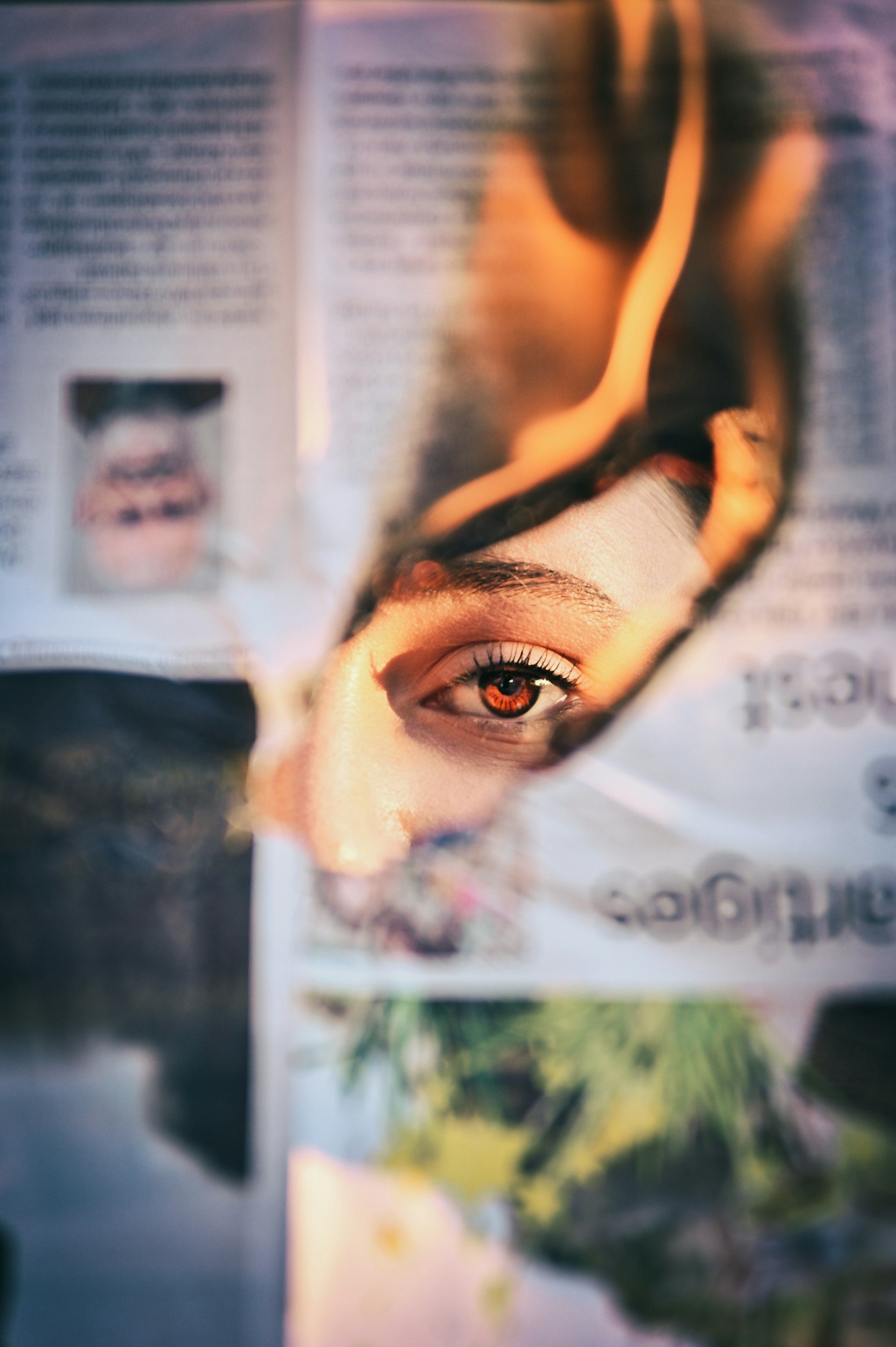Idlis for Examinations
Pencils, three, sharpened. Done.
Pens, three, filled with blue ink. Done.
Writing board with clamp set ready. Done.
Water bottle filled. Done.
Hair oiled and tightly plaited. Done.
Dressed into a comfortable salwar-kurta. Done.
Eat? If, and only if, there were idlis. Soft, piping hot idlis with coconut chutney.
That was me, ready to go take my exams at the exam venue whilst at college and the University in Pune.
One thing worried my parents: I would not eat anything before an exam. Usually timed from 2 to 5 p.m., an afternoon schedule gave me plenty of time to review everything, but surely it would be a long day fast if I ate nothing till after returning home from the exam. Sometimes, and only sometimes, I agreed to gulp down some freshly squeezed orange juice. Severe anxiety and Mummy understood. She made sure to be home prior to my departure for the examination center to bless and hand me a glass of juice.
This spring was different. Mummy was very busy. She simply could not get time off. Of course, I understood. Fortunately for me, Indu Jiji was home. The hot idlis came with Jiji.
For Jiji, I was Guddu, her baby sister. Our bond was different from what we shared with our four older sisters. Even as children. We shared advice, helped each other with school knitting projects, and delved into fun adventures scrambling for sweet berries and tamarind amongst the woods close to our home. As we grew, we replaced berries with ripe, even if outwardly green, custard apples, their sweet and white flesh shorn from seed to seed as we ate together in the cool, back verandah of our house. Jiji was nimble. I was not. Inspired by her, I climbed a tamarind tree right behind her. It took our father to bring me down from the tree, while she pranced down as fast as she had climbed up. From there, we became two young teenagers scrambling to get into jam-packed city buses to go see old Hindi matinee movies at the local cinema.
Jiji was, and still is, always easy for me to hear and comprehend. Maybe it was because she was the sister I grew up with. Maybe her speech was extraordinarily clear. Maybe she was someone who would never say, “Oh…it’s not important. Don’t worry. You did not miss anything.”
Over the years, I got busier with studies. There was always something to study, extra tuition and dance classes to attend, homework to finish, and classwork to catch up on. Jiji moved to the local women’s hostel where she was studying for her bachelor’s degree in home science and, slowly, we drifted apart.
Home for the spring break from college, Jiji decided she would experiment and practice her culinary skills she learned at school. Already an expert in cooking, she had all of these recipes up her sleeve for us. Clearly, Italian and South Indian cuisine were her forte. For the times when pasta was relatively unknown, at least in my house, if not in India, Jiji cooked us some exotic macaroni pasta. I had no idea where she got it from, but creamed in a special home-made mustard sauce with potatoes and peas, her pasta was simply heavenly. So much so that she willingly gave up a large part of her share to our brother. I didn’t.
Other times, Jiji created wafer-thin (she cut the loaf of bread herself) multi-colored, white bread chutney sandwiches. And then there were the stuffed and fried spiced potato bread pakodas she diligently prepared with our father. Spring break that year was unforgettable; we had high tea every evening.
Breakfast mornings, on the other hand, were all about idlis. Idlis are white cakes made from well-fermented ground rice-dal batter. Soft, perfectly cooked idlis just melt in the mouth. They simply break open, the grainy texture splattering against the mouth insides. An accompanying spiced tomato-onion or peanut-coconut-cilantro chutney invariably enhances the bite. There is a process for making idlis and Jiji was an expert at it.
Three portions of rice to one of urad (lentil) dal were washed and soaked overnight in water. The mixture was ground in a blender. Then the batter was allowed to ferment overnight. The next morning, water was set to boil in the huge stainless-steel saucepan. A three-tiered stand was filled with four circular, concaved-shaped molds, each coated with melted ghee. A ladle of the batter was carefully poured into each of the four idli-molds, just enough that it should not overflow. The three-tiered stand was then placed in boiling water and covered for at least twenty minutes. Only when a knife emerged clean from the center was the idli cooked completely. A few minutes of thorough cooling, and twelve idlis were ready to be flicked off their molds.
Served piping hot with fresh peanut-coconut-cilantro chutney, idlis easily became my favorite food.
"Delicious idlis, Jiji. You know what, I might even have them before I go write my exams. Can you please save me some? They are so light, so refreshing." I admired Jiji's idlis, my eyes shut tight as I relished a piece dipped in the cilantro chutney.
"Really?" Jiji was not perturbed. Every day, all through the two-week duration of my exams, she steamed fresh idlis for my morning repast, complete with the delicious chutney.
Eventually, we developed a ritual. Jiji oiled, combed, and plaited my hair while I studied some more. Then, it was time to eat idlis. Finally, it was time to leave for the exam venue.
As always, I would leave extremely anxious and overly stressed. It was not just about writing two to three hours of answers to question papers in different subjects. That was easy. There was something else that often distressed me. I needed to stay on high alert for people who made sudden appearances with announcements in the exam halls. Random or specific announcements that wasted my time and attention. They might’ve been trivial, but they could’ve also been serious; important changes in questions, increased or decreased time for writing the answer papers, or just a warning to stay away from cheating and not glance into another student’s answer copy. The announcements vexed me.
Usually, the first task after I entered the examination room would be to find my exam seat based on the assigned roll number. Then I waited to speak to the person in charge, the supervisor who conducted and watched over students writing exams in huge classrooms.
My usual request was, “I am very hard of hearing. Can you please inform me personally about any announcements made during the examination? Can you please come to my desk and tell me at close quarters so I know I heard right?”
However fervent it was, my request was never taken seriously. I would get a smile, a nod, and sometimes a polite yes. But the truth was that, in all the five years of giving exams every six months, I was informed personally by the in-charge supervisor only twice or thrice. My request was heard and promptly forgotten. It was up to me to stay alert and active.
In time, I developed hawk-like eyes and a habit for scanning people entering the room during exams. As if staring hard and long at people for accurate and precise lip reading on normal days was not bad enough, I also had to glance up and around the hall while writing the exams to sight people who made announcements.
"Was that an announcement? What was it? Perhaps the supervisor will come by in a few minutes now and let me know."
"Something about question six? What? I should better go and check with the supervisor; he does not seem to remember my request."
"Did that sound important? Might be better to go now and check with the supervisor just in case."
Staying so alert with thoughts like the above might have been possible only with a reduced consumption of food. Is that why I refused to eat before exams? Who knows? But, ah, Jiji’s idlis were different.
That year, the last semester at the University, was extremely hard for me. My plate was full. Additionally, I, who had always found it extremely hard to comprehend the speech of two particular professors, was doing an elective in Bio-engineering with both of them. My classmate and good friend Subhalaxmi and I thought it would be trendy to be the first batch to graduate with this new curriculum from Pune University.
Sitting right at the front of the class, within a yard or so, intently focused on lip readings, I still could not comprehend the professor’s speech. Ultimately, I decided on no more note taking; I would simply focus on reading lips. My eyes could not both hear and write. After the class, I would take Subha’s notebook and copy out her notes.
Finals were coming up. Not only were the classes not understood, they became monotonous and dreary. Too many boring details on upscaling an enzyme reaction for high-level engineered production. I developed an obsession. It was okay if I was unable to comprehend the classes; I needed the class notes made by Subha. In reality, the notes were not useful, nor was I going to read them. I could’ve probably found all that stuff in textbooks, but they were still the notes I wanted. They were the notes I needed to copy out from A to Z. Of course, it was never hard to borrow from my dear friend, but time was limited. She needed the notebook for her own studies.
Late one night, I flung Subha’s notebook aside with a sigh. I would just have to return it without copying anything. I would have to be strong-minded about this. There was enough information in the textbook. I should’ve been reading that. Then again, it would’ve been nice if I copied the notes. My mind was playing games. I looked at the clock. It was nearing midnight, well past my bedtime.
Just then, Jiji passed by to go over to her room. Tentatively, I asked her, “I know you have stuff to do, Jiji, but do you think you can help me a bit here? Can you please copy some notes for me?”
No questions were asked as Jiji nodded her assent. “You go to sleep now. I will take care of this.” There and then she took the notebook from my hand. I settled down. I would sleep well.
-Abha Sharma
Abha Sharma is a research scientist at the Department of Bioengineering at the University of Washington, Seattle. Born and brought up in India, Abha struggled to hear since childhood and was a successful self-taught lip reader but was diagnosed with moderate to severe sensorineural hearing loss (SNHL) only in her early teens. Strongly supported and encouraged by her parents, she persevered and continued her education to get a PhD in Biophysics from a premier institute of medical research in India. Abha married Rajendra, a scientist himself and later along with their two young children, traversed through some tough times and immigrated to Texas to pursue the American dream. Some of Abha's previously published articles are: “Puja with Mother”, in Hearing Life (a publication of the Hearing Loss Association of America) (2019); "Barter Beads" in Hearing Health & Technology Matters (2021), "Kitaab" in Touchstone Literary Magazine (2021) and "Why don't you repeat what I just said?" in HerStry (2021). Another story- "A Single Mango" has recently been accepted by Kind Writers Literary Magazine for their summer/fall 2022 issue. Abha is a recipient of the 2021 Grants for Artists' Progress (GAP) Award from the Artist Trust, state of Washington for her literray activities. She was also a semi-finalist in the She Writes Press and SparkPress Towards Diversity in Publishing (STEP) contest and selected for the Hudson Valley Writers Center Fall 2021 and the Altman Writers of Color Winter and Summer 2022 scholarships. Also, one of her articles, "Kitaab" was nominated for inclusion in Sundress Publication's Best of the Net Anthology. Dancing, writing, nature walks, painting, cooking, rediscovering ancient alternative nutritional and water therapies, and spending quality time with family keep Abha joyous, sane and alive.





















